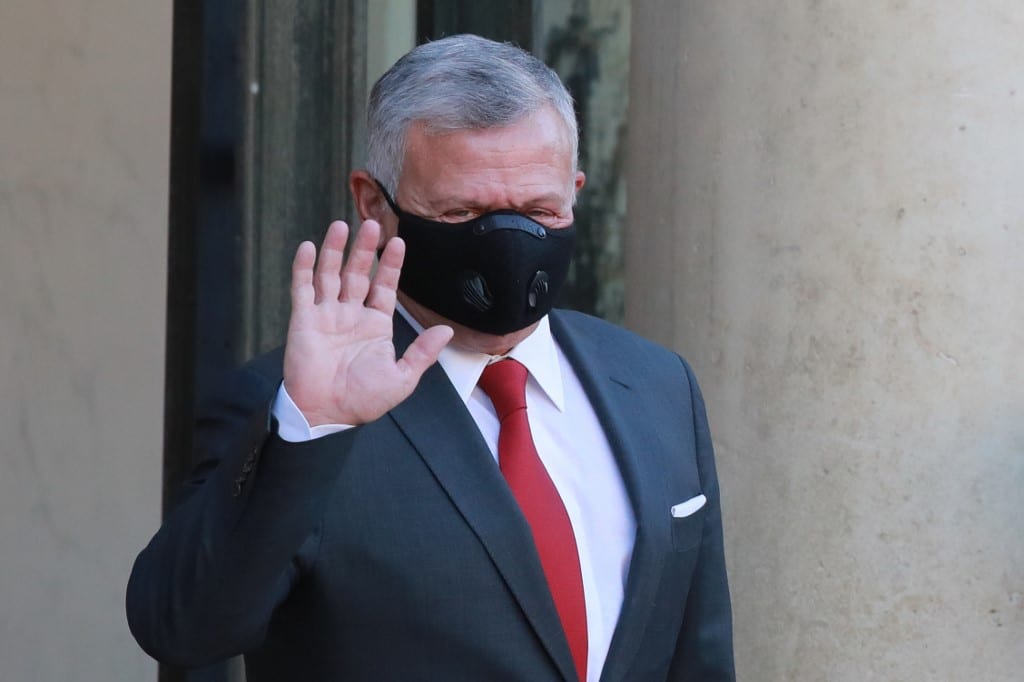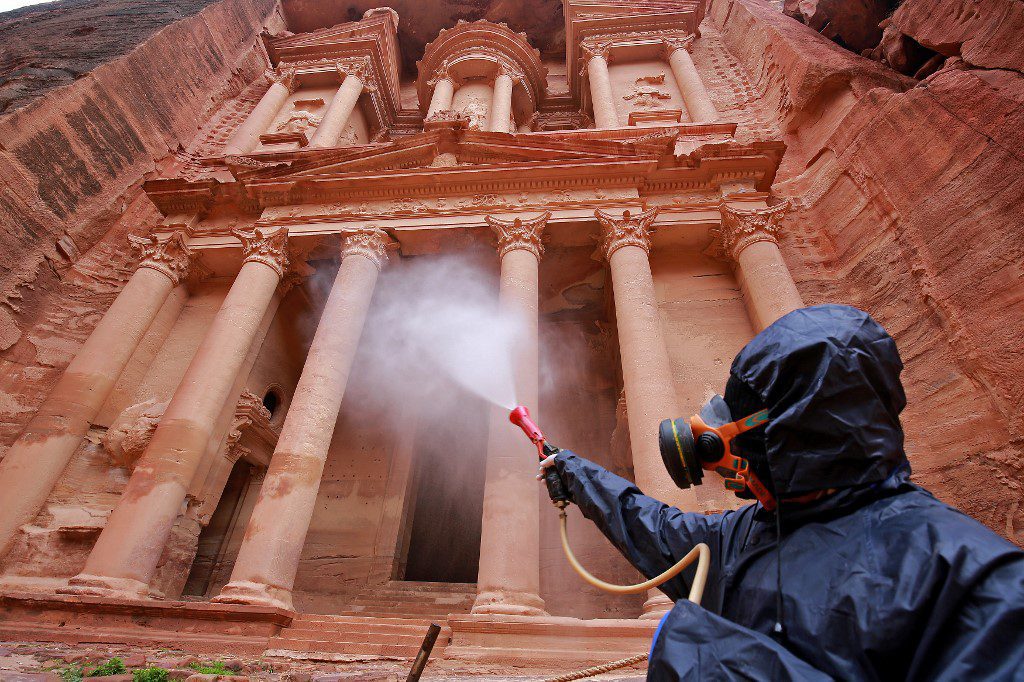
By: Sophia Akram
Jordan’s new Prime Minister Bisher Al Khasawneh was sworn into office before King Abdullah II, along with other government ministers, on 12 October 2020. The Hashemite heir’s appointment is an attempt to quell public disquiet over increasing economic hardship and draconian rule amid a worsening health crisis and shifting geopolitical landscape. Seeing it through its potentially turbulent future could require a dynamic economic response and sensitive bilateral maneuvering regardless of who is in post.
Khasawneh, a 51-year-old British-educated veteran diplomat who will be the13th prime minister appointed under King Abdullah II’s 21-year reign, is replacing the outgoing-Jordanian Premier Omar Al Razzaz, who resigned amid public dissatisfaction during his leadership.
In September 2020, King Abdullah II dissolved Parliament after accepting Razzaz’s resignation, ahead of parliamentary elections due to take place in November.
Amid Jordan’s economic ills, king Abdullah II called to enact the National Defense Law, due to the global coronavirus pandemic, which entrust the Prime Minister with the capacity to take all necessary measures to ensure public safety and to defend the Kingdom, on March, activating the state of emergency to help stem the spread of the coronavirus pandemic.
Strict lockdown measures, such as prohibited movement between governorates, mandatory curfews, businesses, restaurants, schools and universities closures were implemented, and public worship were banned across the country.
According to the Atlantic Council, the swift and aggressive response of Razzaz’s government and relative success at containing the virus in the early stages lent it public trust for the time being.
However, despite assurances from Al-Razzaz to implement the law in “the narrowest extent” possible, on 25 July, 13 of Jordan Teachers’ Syndicate board members were arrested, all its branches were shut down by the police for two years, and dozens of teachers were detained. In few days, a gag order was issued on all reporting and social media content relating to the situation.
Officials made some vague claims of financial abuse and three pending cases in relation to the closure but it appeared to have no legal basis.
Razzaz was himself appointed in 2018 to calm protests that emerged in response to the government’s austerity measures prompted by the International Monetary Fund (IMF), which sought reforms for a better management to the country’s public borrowing commitments.

As well as overseeing incoming elections, Khasawneh’s role will be to enact the reforms encouraged by the IMF after it extended US$1.3 billion under the Extended Fund Facility (EFF) for the Hashemite kingdom to increase “inclusive growth” that involved creating jobs for women and young people, reducing poverty and that included support for COVID-19 crisis.
These involve making structural changes, such as reducing high electricity costs for businesses and temporary social security reductions. Other reforms have been programmed to boost its business environment, competitiveness and attractiveness to foreign investment and strengthen the regulatory framework around the financial and banking sectors.
It also includes a reduction of its public deficit and the main driving forces prompting initial protests and discontent over the economy.
Jordan’s economy is facing its worst decline in decades, expected to contract 6 percent this year, as the debt-GDP ratio was almost 100 percent before the pandemic. Per capita has declined by 2.4 percent between 2009 and 2017 and youth unemployment risen by 6 percent over the five years until 2019.
On the other hand, its tourism industry has thrived over the last few decades and generated $5.8 billion in revenue in 2019 out of its $43 billion recorded GDP the same year, but COVID-19 has placed a hamper on its imminent revival.
Due to its lack of natural resources, the country has been dependent on foreign aid, which flows in heavily from the Gulf and Jordanian migrants’ remittances that make up 10 percent of Jordan’s GDP. As oil prices have declined, however, so has this stream of income.
The prospect of another full lockdown could be another devastating blow as Jordan has experienced a particularly bad resurgence of the virus in recent months. October 2020 has seen the highest daily spikes of confirmed cases of the virus in the country, with total number of positive COVID-19 cases in the country is almost at 60,000 with 668 deaths recorded, and the continued surge could potentially debilitate the health services.
The monarch’s Letter of Designation to the new prime minister came with clear and specific economic directives at a “crucial and sensitive time for the Kingdom given its economic reform aspirations in the midst of a pandemic”, said political science professor Jamal Shalabi.
“The king dismissed prime ministers in response to popular protests six times from 2011 to present day, but this action is increasingly viewed as ineffective scapegoating”, says Alexander Werman, a political and security risk analyst on the Middle East and North Africa region.
The country’s future is also likely to encounter more challenges, being surrounded by political upheaval, war and insecurity in Lebanon, Syria and Iraq, which will add to Jordan’s aid bill taking in more refugees as the country already hosts hundreds of thousands of refugees from different nationalities.
Jordan has also avoided outright criticism of the US, even while it pursues its unrelenting support for Israel as it undermines the peace process underpinning the region, so as not to rock the boat on its billion-dollar aid package, which in the country’s current precarious state could be crucial.
Maneuvering the course ahead is dependent on making smart economic policy choices. This, in theory, according to academic and Jordanian Times columnist Amer Al Sabaileh, requires a three-pronged strategy that involves quick stimulus along with alliances between local businesses and the government in the short and medium-term. The long game should be focused on “agriculture, local industries, education and creating the best conditions for the Jordanian geography to connect the region in mega projects from transportation to energy”, he says.
However, any move forward will most certainly involve cutting social safety nets, which appears at odds with the mentioned objectives of inclusive growth.
All the above proves an increasing challenge for a country trying to meet mandated reforms, improve the economy for its vulnerable citizens while balancing its geopolitical objectives amid a global pandemic.


